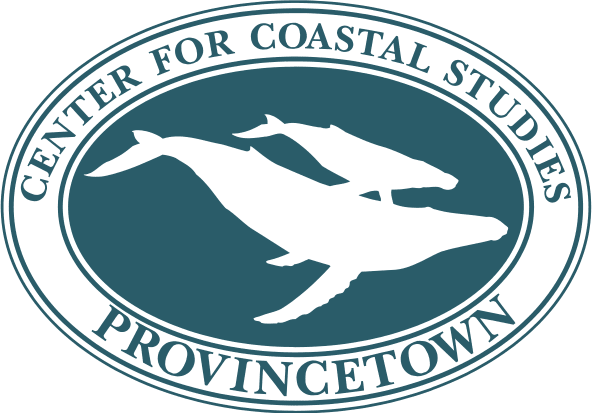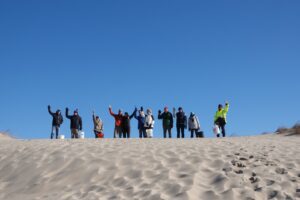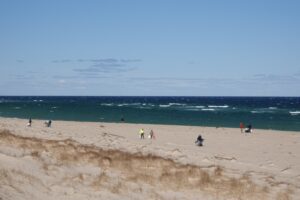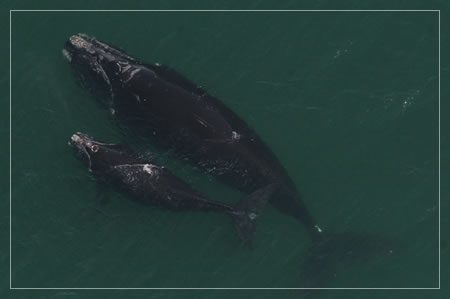![]() Each month the Marine Debris and Plastics Program forms a “beach brigade” of local volunteers to help mitigate marine debris and collect data. This March, 16 volunteers joined us at High Head in Truro, with buckets, wheelbarrows and sleds to haul out the trash. We arrived at the parking lot at 9:00 am for an expected three hour beach clean up. We hiked through the dunes toward the beach, feeling the wind pick up as we neared the ocean. Once we crested the final dune, we could tell that we would be in for a blustery walk, yet thanks to the sun, we were still warm, dry, and ready to collect debris.
Each month the Marine Debris and Plastics Program forms a “beach brigade” of local volunteers to help mitigate marine debris and collect data. This March, 16 volunteers joined us at High Head in Truro, with buckets, wheelbarrows and sleds to haul out the trash. We arrived at the parking lot at 9:00 am for an expected three hour beach clean up. We hiked through the dunes toward the beach, feeling the wind pick up as we neared the ocean. Once we crested the final dune, we could tell that we would be in for a blustery walk, yet thanks to the sun, we were still warm, dry, and ready to collect debris.
The beach was expansive and looked quite clean, yet as we spread out across the sand, we quickly began filling up our buckets. Some of the most popular items we came across were plastic bottles, balloons, and fishing related debris. Our most unique finds included a pair of foul weather gear overalls, the top third of a canoe and a golf driver.
Walking back to the parking lot, we stumbled upon the greatest find of the day– the jaw bone of a Fin whale! We left this find behind, alerting researchers at CCS so that they could collect genetic samples from the bone.
Upon returning to the CCS lab, we enjoyed a quick lunch, and then launched into the process of tallying all of the trash. We set up tables with tarps and canvases, and then dumped the contents of our buckets. Slowly we were able to group types of debris, marking down the total number of objects in each category on our data sheets. The final numbers for our top ten most frequently found items were: 645 pieces of nondescript rigid plastic <2 cm/1 in, 203 pieces of nondescript plastic film, 191 pieces of nondescript metal, 158 pieces of cooler foam, 139 pieces of nondescript rigid plastic >2 cm/1 in, 131 pieces of foam cup, 85 balloons/balloon strings, 80, pieces of glass, 76 food wrappers, 65 plastic bottle caps, 56 pieces of construction foam, 48 pieces of blue dock foam.
As we moved into later March, several exciting events awaited us. The CCS Marine Debris and Plastic Program along with the Marine Fisheries Program were present at the Massachusetts Lobstermen’s Association Annual Weekend. At the conference in Hyannis, we spoke with fishermen about our work recovering ghost gear (lost or abandoned fishing gear) and asked them where they may have lost gear, marking their input on a chart of Massachusetts Bay. In addition to meeting new collaborators and collecting intel on where our work may be most impactful, we also attended meetings hosted by researchers at Woods Hole Oceanographic Institution and Northeastern University and attended a roundtable discussion with policy makers and scientists at MA Division of Marine Fisheries.
Once we were back in Provincetown, the ghost gear grappling field season commenced. Due to the closure of Cape Cod Bay between the months of February and May, we conduct fishing gear removal during this time. April 2nd was our first full day of gear removal on the F/V Miss Lilly captained by Mike Rego. We spent much of the day right off of the tip of Long Point given the density of gear in that area. We dragged large metal hooks (called a grapple) and snagged nets, lines, rope and traps. After eight hours of grappling, we collected 19 lobster traps and heaps of net, ropes, steel cable, wire and other debris. Once we loaded all the gear onto the dock, Laura Ludwig and Fritz McGirr conducted further data collection and organization of the materials, and explained the program to a visiting group of students from Cornell University.
Now, as Earth Day is approaching (April 22) we are gearing up for a full day beach clean up and trash tally. If you are interested in participating, please reach out to [email protected] or [email protected] to sign up!
Photo at top: L-R: Owen Nichols, CCS Marine Fisheries Research; Erin Pelletier, GOMLF; Laura Ludwig, CCS Marine Debris Program; Caitlin Townsend, Net Your Problem; Wilson Haims, Joanna Toole Intern; Fritz McGirr, CCS MDP; Tommy Tucker, CCS MFR – at the Massachusetts Lobstermen’s Association Annual Weekend.





